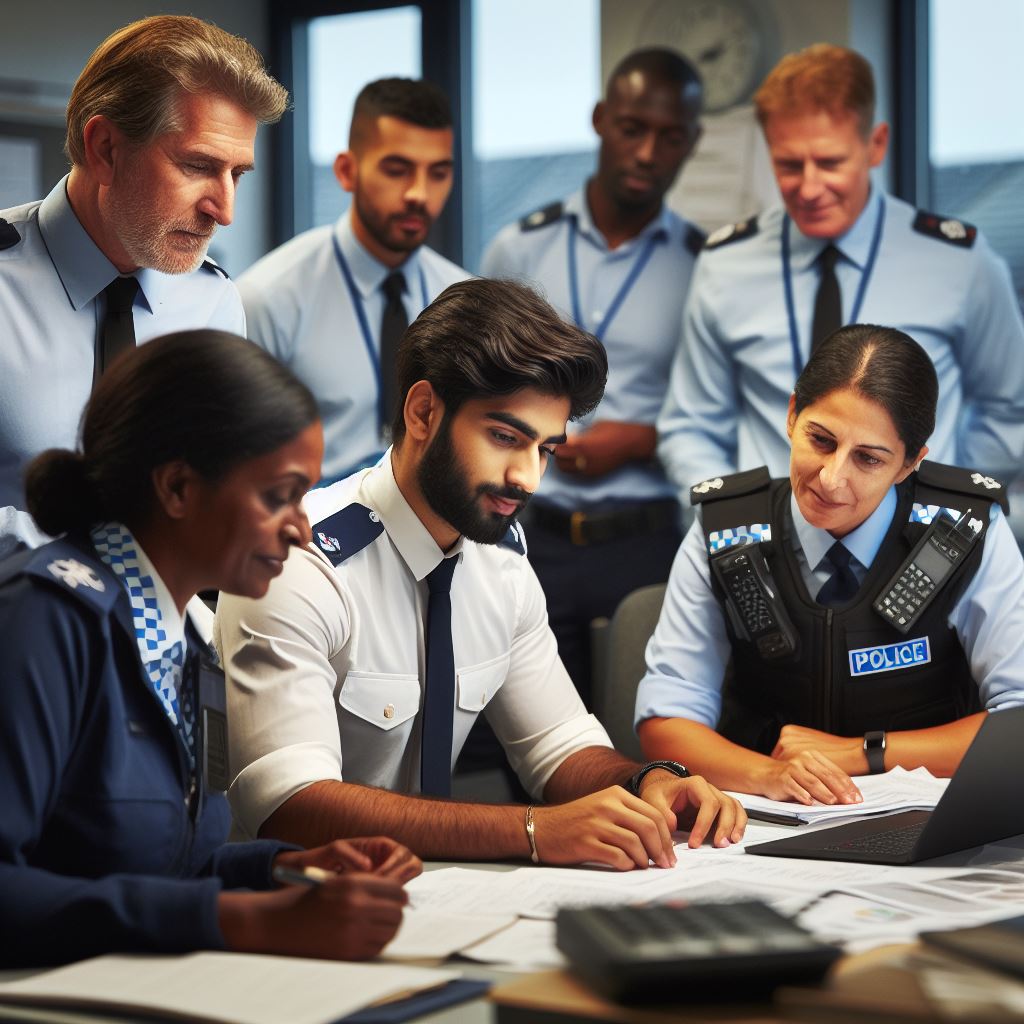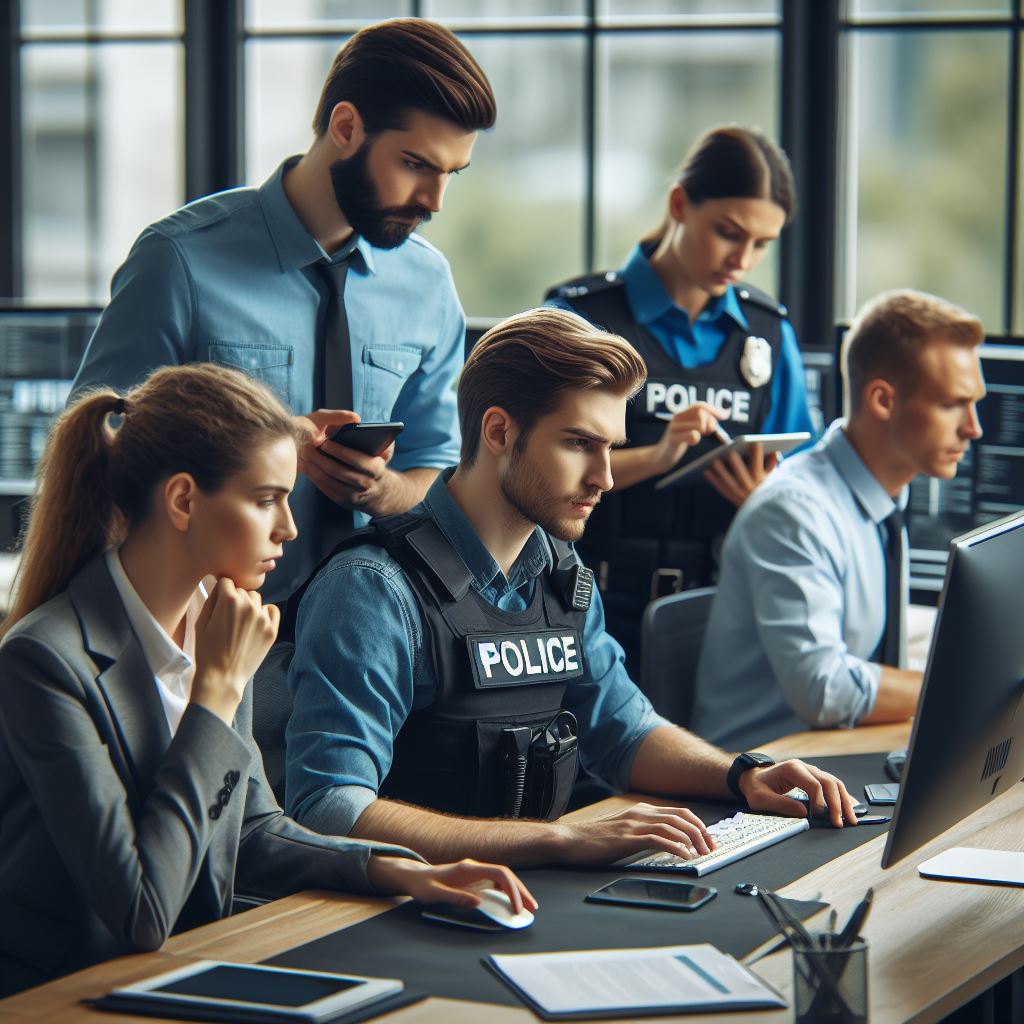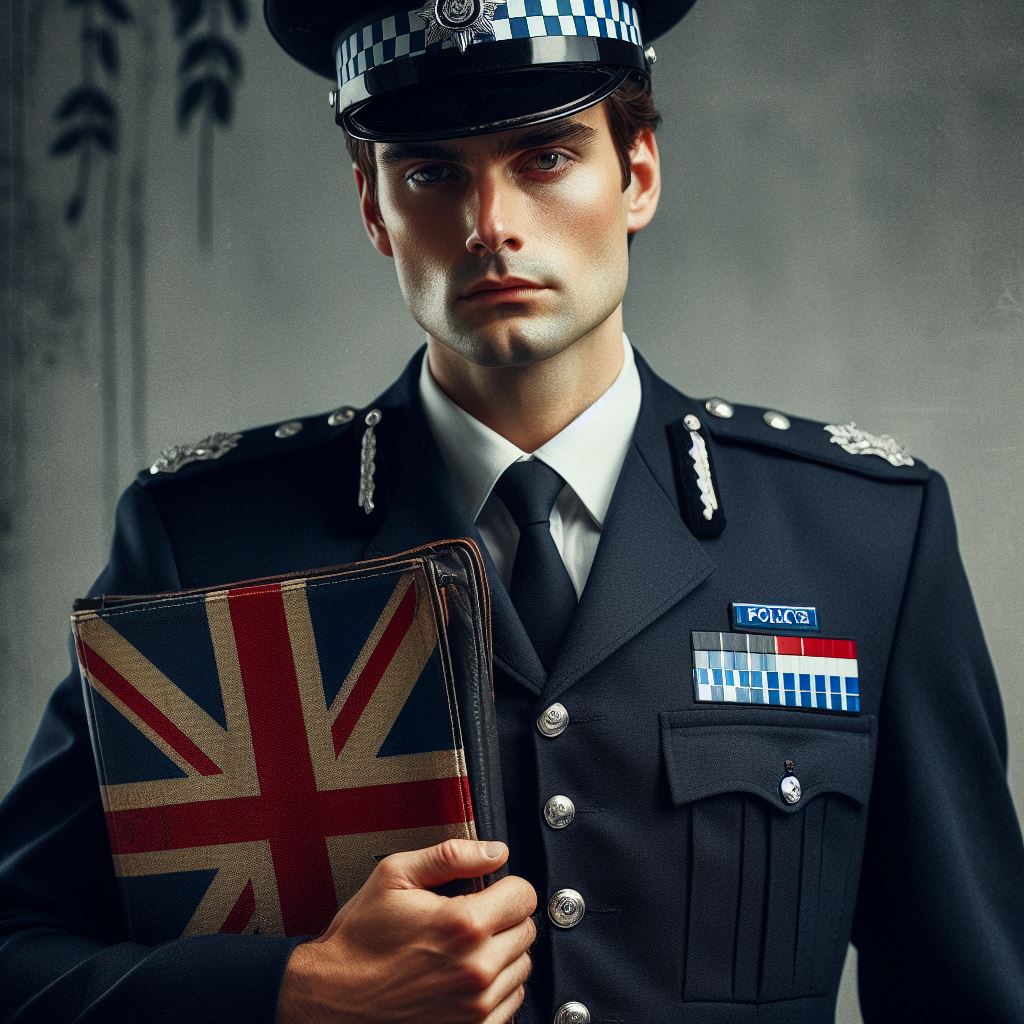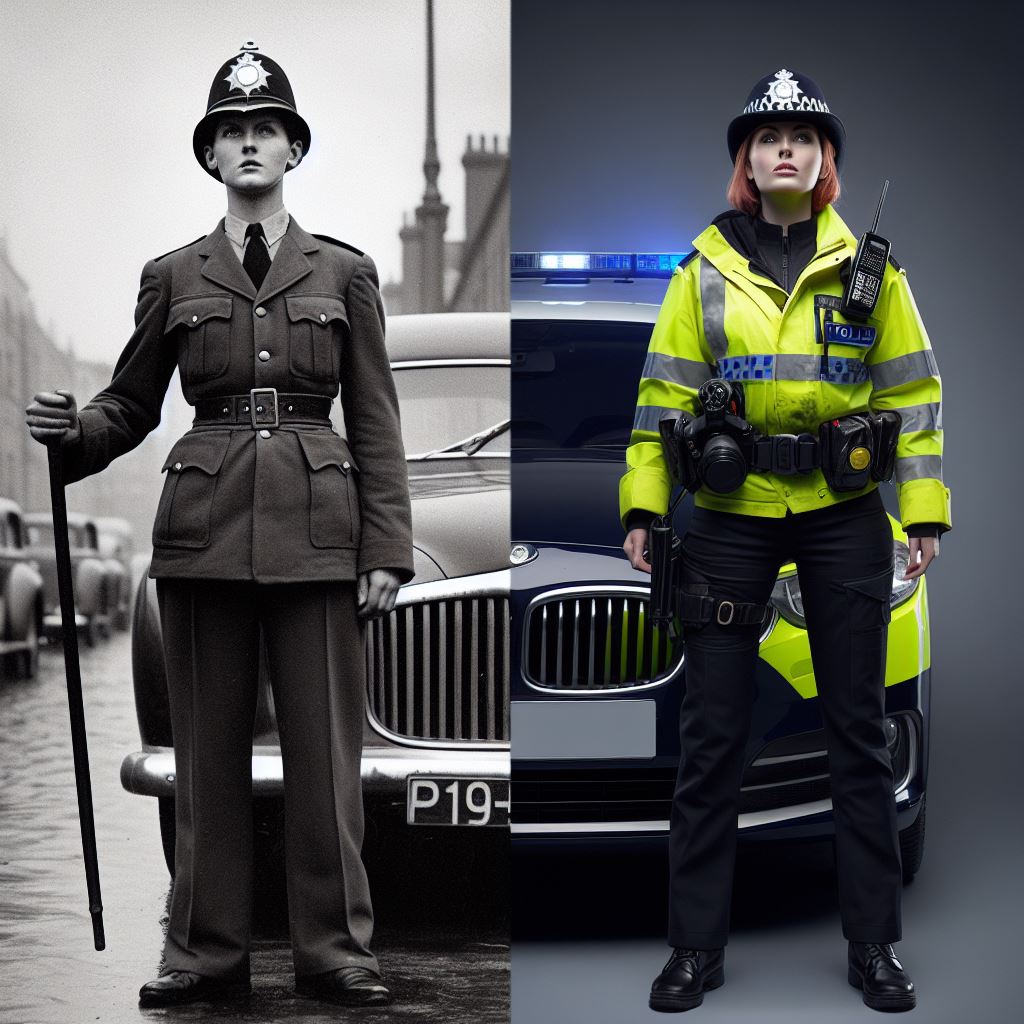Introduction
Policing and Legal Rights in the UK is a crucial topic that deserves attention.
Understanding legal rights in relation to policing holds immense importance as it ensures a fair and just system.
This blog post will provide readers with an overview of key aspects to be covered.
Legal rights play a significant role in maintaining the balance of power between the police and the public.
By understanding these rights, individuals can protect themselves from potential abuses and violations.
In a democratic society, it is essential to know your rights when dealing with law enforcement.
This blog explores UK policing and legal rights, covering fundamental individual rights, including liberty, privacy, and freedom from discrimination.
Additionally, we will explore the powers and limitations of the police when it comes to arrest, search, and detention.
Furthermore, we will examine the importance of public accountability and oversight of law enforcement agencies.
This will include an overview of the Independent Office for Police Conduct (IOPC) and its role in investigating complaints against the police.
Lastly, we will touch upon recent developments in policing and legal rights, such as the impact of technology and the challenges it poses to privacy and civil liberties.
We will also discuss the importance of promoting community engagement and trust between the police and the public.
By the end of this blog post, readers will gain a comprehensive understanding of the crucial relationship between policing and legal rights in the UK.
It is important to be informed and aware of these rights to ensure a just society that respects the rule of law.
Role of the Police in the UK
Primary purpose and responsibilities of the police
- The primary purpose of the police in the UK is to maintain law and order.
- They are responsible for protecting life, property, and maintaining public safety.
- Police officers uphold the law, prevent and investigate crimes, and ensure justice.
- They work to safeguard the welfare and well-being of the communities they serve.
- Furthermore, the police play a crucial role in building trust with the public.
Maintaining public order and safety
- Maintaining public order and safety is a fundamental task of the police in the UK.
- They handle various situations that threaten public safety, such as riots or demonstrations.
- Police officers have the power to enforce the law and maintain peace in society.
- They respond to emergencies, manage traffic, and ensure public gatherings are peaceful.
- Additionally, they promote community safety initiatives and educate the public about crime prevention.
Police’s role in preventing and detecting crime
- The police are at the forefront of crime prevention in the UK.
- They actively patrol communities to deter criminal activities and respond to reports of suspicious behavior.
- Police officers gather evidence, interview witnesses, and conduct investigations to detect and solve crimes.
- They collaborate with other agencies and use advanced technology to combat organized crime.
- Furthermore, the police work to prevent reoffending and support rehabilitation initiatives.
Overview of the different police forces in the UK
- The UK has multiple police forces, each responsible for specific geographic regions.
- The most well-known police force is the Metropolitan Police Service, covering Greater London.
- Other forces include the City of London Police, British Transport Police, and regional forces.
- Regional forces operate in England, Wales, Scotland, and Northern Ireland.
- These forces work closely with communities and tailor their approach to local needs.
In a nutshell, the police in the UK play a vital role in maintaining law and order, ensuring public safety, and preventing and detecting crime.
Personalized UK Career Consulting
Receive tailored career guidance designed just for you. Get actionable steps and expert support to boost your career in 1-3 days. Take control of your career now.
Get StartedPolice in the UK patrol, investigate crimes, and collaborate with communities to enhance safety across diverse regions.
The tireless efforts of the police contribute to the overall well-being and security of the country.
Read: How UK Police Work with the Community
Legal Rights in the UK
Legal rights are an essential aspect of any democratic society, ensuring that individuals are protected and treated fairly by the law.
In the United Kingdom, these rights play a crucial role in upholding justice and guaranteeing civil liberties.
The Concept of Legal Rights
Legal rights refer to the entitlements and freedoms that individuals possess under the law. These rights are essential for the maintenance of a just and equitable society.
They serve as a safeguard against injustice and abuse of power. At their core, legal rights promote equality, fairness, and the protection of individual autonomy.
They grant individuals the power to express their opinions freely, live without discrimination, and have access to justice.
Basic Legal Rights in the UK
- Individuals in the UK have fundamental legal rights that are protected by law.
- These rights include the right to life, freedom from torture, and the right to a fair trial.
- Everyone is entitled to these basic rights, regardless of their background or circumstances.
- Additionally, individuals have the right to freedom of expression, freedom of assembly, and freedom of association.
- These rights allow individuals to voice their opinions, peacefully protest, and join organizations of their choosing.
The Human Rights Act of 1998
The Human Rights Act 1998 holds great significance in protecting individuals’ rights in the UK.
This Act incorporates the rights outlined in the European Convention on Human Rights into UK law.
It ensures that public authorities respect and uphold these rights in all their actions.
The Act guarantees several fundamental rights, including the right to life, the right to a fair trial, and the right to privacy.
It also protects against discrimination, torture, and inhuman or degrading treatment. The Human Rights Act serves as a vital safeguard against potential breaches of these rights.
Legal Rights Relevant to Policing Scenarios
- Legal rights have specific relevance in policing scenarios to ensure that law enforcement agencies act within the boundaries of the law and respect individuals’ rights.
- Some of the key legal rights in these scenarios include the right to be treated fairly and with dignity.
- Individuals also have the right to be informed of the reason for their arrest, the right to legal representation, and the right to remain silent.
- These rights protect individuals from arbitrary arrest, unjust treatment, and ensure their access to a fair trial.
- Furthermore, individuals have the right to challenge the lawfulness of their detention through habeas corpus, a legal action that prevents unlawful imprisonment.
Legal rights are essential for the protection of individuals’ freedom, equality, and justice in the UK.
Your Dream Job Starts with a Perfect CV
Get a tailored CV and cover letter that captures your unique strengths and stands out in your industry. Let us help you make an unforgettable first impression.
Get StartedThe concept of legal rights and their significance lay the foundation for a fair and democratic society.
It is crucial for individuals to be aware of their rights and for the government and public authorities to uphold and respect them at all times.
The Human Rights Act 1998 plays a pivotal role in ensuring these rights are upheld, providing a legal framework to prevent any potential abuse of power.
In policing scenarios, legal rights act as a safeguard against arbitrary actions and promote fair treatment and due process.
By upholding legal rights, society can foster an environment where individuals are treated justly, protected from discrimination, and have avenues for redress when their rights are violated.
Read: The Challenges UK Police Officers Face Daily
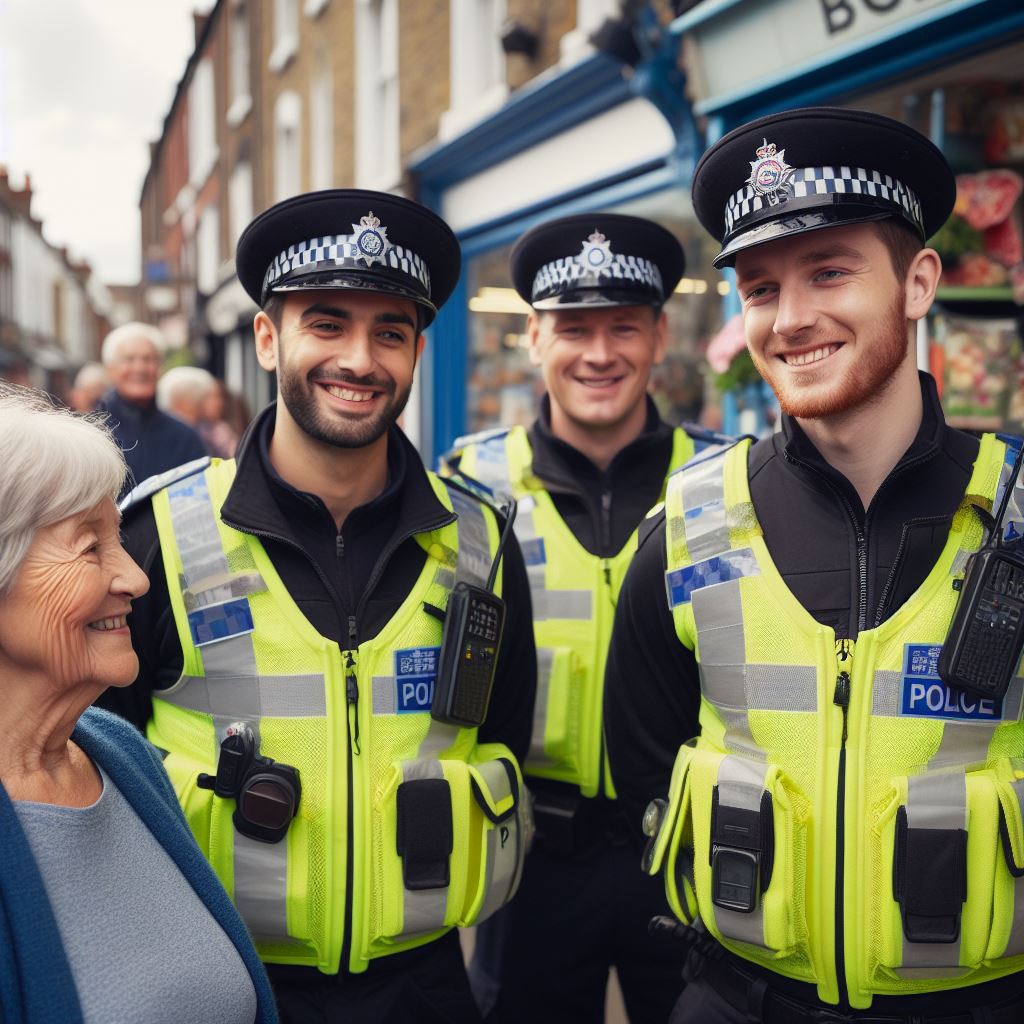
Stop and Search Powers
Stop and search powers are a vital tool in law enforcement in the UK. This practice allows the police to stop and search individuals under specific circumstances.
In this section, we’ll explore stop and search powers, the governing laws, circumstances, and individuals’ rights during encounters.
Explanation of Stop and Search Powers
Stop and search powers authorize police to stop and search individuals suspected of criminal activities, aiming to maintain public safety and prevent crime.
The police can use stop and search powers under various legislation, including the Police and Criminal Evidence Act 1984 (PACE) and the Terrorism Act 2000.
Laws and Regulations Governing Stop and Search Procedures
Stop and search procedures must adhere to specific laws and regulations to ensure they are conducted lawfully and fairly.
The key legislations governing these procedures include:
- Police and Criminal Evidence Act 1984 (PACE): This legislation sets out the rules and guidelines for conducting stop and search operations and safeguards individuals’ rights.
- Terrorism Act 2000: This act grants additional stop and search powers to the police concerning suspected terrorism-related activities.
Specific circumstances, authorities can stop and search a person.
There are specific circumstances under which the police can stop and search an individual
- Reasonable Suspicion: The police must have reasonable suspicion that an individual is involved in criminal activity or carrying prohibited items.
- Terrorism Suspects: The police can stop and search individuals they reasonably suspect to be involved in terrorism-related activities.
- Prohibited Items: If the police have reasonable suspicion that an individual possesses prohibited items, they can conduct a stop and search.
Individuals’ Rights during a Stop and Search Encounter
During a stop and search encounter, individuals have certain rights that need to be respected
Optimize Your LinkedIn for Success
Boost your LinkedIn profile with a professional bio, keyword-rich headline, and strategic recommendations that attract recruiters. Stand out from the crowd and get noticed.
Optimize Now- Respectful Treatment: The police must treat individuals with respect, courtesy, and fairness throughout the process.
- Explanation of the Stop and Search: The police should provide a clear explanation for the stop and search, including the reason and legal basis.
- Identity and Warrant Card: The police officers must identify themselves, provide their name and police station, and show their warrant card upon request.
- Record Keeping: The police should provide individuals with a written record of the stop and search, including the officer’s details and the reason for the search.
- Right to Complain: Individuals have the right to make a complaint if they believe their stop and search encounter was conducted improperly.
These rights exist to ensure transparency and accountability in the police’s use of stop and search powers.
Generally, stop and search powers play a crucial role in ensuring public safety and preventing crime in the UK.
While these powers grant the police significant authority, there are strict laws and regulations in place to prevent abuse and protect individuals’ rights during a stop and search encounter.
Read: Understanding UK Police Ranks and Roles
Discover More: UK Politicians and International Diplomacy
Discover More: Election Process Unveiled: Becoming a UK MP
Arrest and Detention
Legal process of arrest and detention
The legal process of arrest and detention involves several rights and procedures that must be followed.
- Arrest: When a person is suspected of committing a crime, they may be arrested.
- Legal procedures: During an arrest, certain rights must be observed, such as being informed of the reasons for arrest.
- Detention: After arrest, the suspect may be taken into custody for questioning and further investigation.
- Rights of detainees: Detainees have the right to remain silent and the right to legal representation.
- Detention periods: The length of time a person can be held in custody without charge varies depending on the severity of the offense.
- Access to legal representation: Detainees have the right to consult with a lawyer during their detention.
- Legal process after arrest: After arrest, the case may proceed to court, where evidence will be presented and justice will be sought.
Rights and procedures that must be followed during an arrest
The legal process of arrest and detention is crucial for maintaining law and order.
When someone is suspected of committing a crime, police officers have the authority to arrest them.
This process begins by informing the suspect of their rights and the reasons for their arrest.
During an arrest, the suspect must be treated fairly and with respect. They have the right to remain silent to avoid self-incrimination.
You can request basic information like name and address, but anything said by the suspect may be used as evidence later.
Custody and the rights of detainees
Once arrested, the suspect may be taken into custody for further questioning. The detention period varies depending on the seriousness of the offense.
For minor offenses, the detainee may be released on bail or without charge. However, for more serious crimes, the detention period may be longer.
While in custody, detainees must be provided with the necessary facilities, such as food, water, and medical assistance if required.
They also have the right to contact a lawyer to seek legal advice. This crucial right allows a lawyer to guide individuals through the legal process, ensuring protection of their rights.
Legal process after arrest
- After arrest, the case may proceed to court.
- The investigation will present the gathered evidence, and the judge or jury will decide the suspect’s guilt or innocence.
- If found guilty, the defendant will face legal consequences as determined by the court.
Overall, The legal process of arrest and detention ensures fair treatment and respects the rights of individuals suspected of crimes.
It is important to understand these procedures to maintain trust and confidence in the criminal justice system.
Use of Force and Police Powers
Overview of police powers to use force in specific situations
- The Police and Criminal Evidence Act 1984 grants police officers the authority to use force when necessary.
- This includes situations where they need to protect themselves or others from harm.
- Police have the authority to use force, including the arrest of individuals suspected of committing a crime.
- The level of force used by the police must always be proportionate to the threat presented.
- Officers undergo training in various de-escalation techniques before considering the use of physical force.
Legal limitations on the use of force by the police
- While police have the power to use force, there are legal limitations in place.
- The Human Rights Act 1998 establishes a framework that protects individuals’ rights during police interactions.
- Use of force must comply with the principles outlined in the European Convention on Human Rights.
- The force used must be necessary, proportionate, and in accordance with the law.
- Unlawful or excessive use of force by the police can result in legal consequences.
Independent Office for Police Conduct (IOPC) and its role in investigating complaints against the police
- The Independent Office for Police Conduct (IOPC) is an independent body responsible for overseeing police conduct complaints.
- It ensures police forces handle complaints effectively and impartially.
- The IOPC investigates the most serious allegations against the police, including cases involving deaths or serious injuries.
- It reviews the way police forces handle less serious complaints to maintain public confidence.
- The IOPC can recommend disciplinary action when it finds misconduct or abuse of power.
Overview of legal remedies for victims of police misconduct or abuse of power
- Victims of police misconduct or abuse of power have legal remedies available to seek justice.
- They can make a complaint directly to the police force involved or through the IOPC.
- The IOPC can recommend disciplinary action, such as formal warnings or dismissal.
- In serious cases, victims can pursue civil litigation against the police for damages.
- Victims may also seek legal advice to explore other avenues, such as judicial review or public inquiries.
All in all, police powers to use force are essential for maintaining public safety.
However, these powers come with legal limitations to safeguard individuals’ rights.
The Independent Office for Police Conduct actively ensures thorough investigations of complaints against the police.
Victims of police misconduct or abuse of power have access to legal remedies to seek justice and hold the police accountable.
It is crucial to strike a balance between providing police with necessary powers and protecting the rights and well-being of the public.
Read: Top Challenges Faced by UK Diplomats Abroad
Conclusion
This blog post aimed to provide a clear understanding of policing and legal rights in the UK.
We discussed various aspects such as the powers of the police, stop and search procedures, and the right to silence.
It is crucial to comprehend these rights as they form the foundation of a fair and just legal system.
Understanding legal rights in relation to policing is of utmost importance.
It ensures that individuals are aware of their entitlements and can actively protect themselves if ever faced with a situation involving law enforcement.
By knowing their rights, individuals can assert themselves, challenge unfair treatment, and prevent any potential abuses of power.
This blog post serves as a reminder for readers to be aware of their rights and seek legal assistance if needed.
Knowledge is power, and understanding legal rights can empower individuals to navigate the complexities of the justice system.
If uncertain about your rights, consult a legal professional for proper information in a specific situation.
In closing, having a comprehensive understanding of legal rights in the context of policing is crucial for individuals in the UK.
It allows them to protect themselves, challenge unfair treatment, and maintain a fair and just society.
Remember, knowledge is key, so be aware of your rights and seek legal assistance when necessary.
[E-Book for Sale]
500 Cutting-Edge Tech Startup Ideas for 2024 & 2025: Innovate, Create, Dominate
$19.99 • 500 Tech Startup Ideas • 62 pages
You will get inspired with 500 innovative tech startup ideas for 2024 and 2025, complete with concise descriptions to help you kickstart your entrepreneurial journey in AI, Blockchain, IoT, Fintech, and AR/VR.

